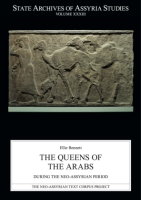Harlot or Holy Woman?
A Study of Hebrew Qedešah
Phyllis A. Bird
“Phyllis Bird deserves praise for amassing all this material into one volume and for her careful and insightful analysis of both biblical and extrabiblical texts.”
- Description
- Reviews
- Bio
- Table of Contents
Bird’s study reviews all the texts from classical antiquity cited as sources for an institution of “sacred prostitution,” alongside a comprehensive analysis of the cuneiform texts from Mesopotamia containing the cognate qadištu and Ugaritic texts containing the masculine cognate qdš. Through these texts, Bird presents a portrait of women dedicated to a deity, engaged in a variety of activities from cultic ritual to wet-nursing, and sharing a common generic name with the qedešah of ancient Israel. In the final chapter she returns to biblical texts, reexamining them in light of the new evidence from the ancient Near East.
Considering alternative models for constructing women’s religious roles in ancient Israel, this wholly original study offers new interpretations of key texts and raises questions about the nature of Israelite religion as practiced outside the royal cult and central sanctuary.
“Phyllis Bird deserves praise for amassing all this material into one volume and for her careful and insightful analysis of both biblical and extrabiblical texts.”
“Exploring the relationship between Orientalism and the myth of sacred prostitution reveals the ongoing significance of Bird’s work. Her book shows how the myth of sacred prostitution is embedded in a broader discourse about fertility and the uncontrolled sexuality of Middle Eastern women—and this may be the lasting legacy of the work.”
“[W]e must highlight the richness of the research work carried out by the author, the multiplicity of sources studied, whether in Hebrew, Akkadian, Ugaritic or Greek, and the clarity of the speech. We think, thanks to Bird’s work, it was possible to have a clearer picture of the role played by the qedešah within the cultures and religions of the Near Ancient East.”
Phyllis A. Bird is Professor Emerita of Old Testament Interpretation at Garrett-Evangelical Theological Seminary. She is the author of Missing Persons and Mistaken Identities: Women and Gender in Ancient Israel; Faith, Feminism, and the Forum of Scripture; Feminism and the Bible; and The Bible as the Church’s Book.
Preface and Acknowledgments
List of Abbreviations
1. Introduction
2. Sacred Prostitution as Interpretive Construct
3. Sir James George Frazer and the Concept of Sacred Prostitution
4. Classical Sources in Constructions of Sacred Prostitution
5. New Sources from the Ancient Near East
6. Qedešah in the Hebrew Bible
Appendix A. Synopsis of Classical Sources in Constructions of Sacred Prostitution
Appendix B. Synopsis of qadištu /nu.gig Texts
Appendix C. Nu- gig in Early Sumerian Texts
Bibliography
Index of Sources
Also of Interest
Mailing List
Subscribe to our mailing list and be notified about new titles, journals and catalogs.








